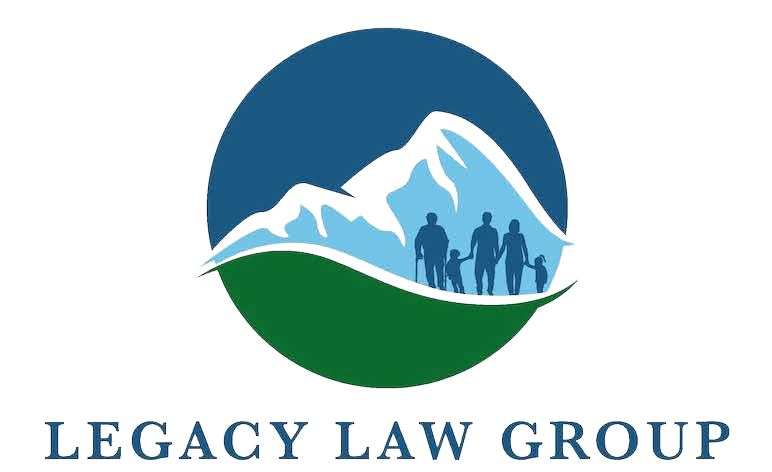KIDS PROTECTION PLAN
HAVING A WILL ALONE SIMPLY DOES NOT ENSURE THE CARE
OF YOUR KIDS IF THE UNTHINKABLE HAPPENS TO YOU!
KIDS PROTECTION PLAN
If you are a parent of minor children (or those with special needs) who are counting on you, Your estate plan must begin with your children would always be taken care of by the people you want, in the way you want, no matter what happens. At Legacy Law Group, one of our areas of greatest expertise is planning for the well-being and care of the children you love.

WITHOUT PROPER PLANNING,
HERE'S WHAT COULD HAPPEN:
- Your children could be placed into Child Protective Services (CPS) even if you have a will in place; even if you have a living trust while your legal documents or located or your family is identified. Or worse, your kids could be left in the care of the one person in your family you would never want raising them;
- A Judge who doesn’t know you, or your family, will decide who will raise your kids, even if it’s the last person you would ever want;
- Approximately 5% of the total value of your assets could be lost due to probate, a court process that can tie up your assets for months or years and deprive your kids of the resources they need to live comfortably;
- When your kids turn 18, they get a check for whatever assets are left – outright with no protection
- There are unscrupulous people who make it their business to review public records to find out what 18 year old’s are coming into money;
The vast majority of estate planning attorneys simply do not address these issues, and do not plan from a parent’s perspective.
WHAT IS KIDS PROTECTION
PLAN?
A Kids Protection Plan® is a set of instructions, legal documents and even an ID card for your wallet, which you need to have if you have kids at home who count on you for their well-being and care.If you are in an accident, your Kids Protection Plan® will make sure your children are never taken into the custody of Child Protective Services, strangers or the care of anyone you wouldn’t want because the authorities don’t have clear instructions from you. And your Kids Protection Plan® will ensure your children are raised by people you choose, not someone chosen by a Judge who doesn’t know you.
NAMING LEGAL GUARDIANS
FOR MINOR CHILDREN
If you have minor children at home (or children who have special needs), it’s time to review your plan for their care, if and when something happens to you. Then, consider taking the very first step that every parent must have in place (no matter whether you have $1 or $10 million), and name legal guardians for your children for the long-term here.If you and your spouse/partner cannot agree on who would be the ideal guardian(s) for your kids, that’s something we can help with. We have special training from the Family Wealth Planning Institute on helping parents work through this critical decision.If you do nothing, the decision about who would raise your children (if something were to happen to you) would be left up to a judge to decide. A judge who doesn’t know you, doesn’t know what’s important to you, and doesn’t know your children will make all the decisions about who cares for the people who are most important to you in the world.We know that’s not what you want.And, truth is… there may never be a perfect solution for you, but there is definitely a solution that is better than your children being raised by someone you didn’t choose.Perhaps you think the way so many parents do, “if we don’t anticipate it, it will never happen, right?” Yes, these things scare us too. That’s why we offer a Kids Protection Plan with every estate plan we prepare for families with young children.
READY TO BEGIN?
WHAT IS A REVOCABLE
LIVING TRUST?
This is an agreement with three parties: the Trust-makers, the Trustees (or Trust Managers), and the Trust Beneficiaries. For example, a husband and wife may name themselves all three parties to create their trust, manage all the assets transferred to the trust, and have full use and enjoyment of all the trust assets as beneficiaries. Further “back-up” managers can step in under the terms of the trust to manage the assets should the couple become incapacitated or die. Special provisions in the trust also control the management and distribution of assets to heirs in the event of the trust maker’s death. With proper planning, the couple also can avoid or eliminate death taxes on their estate. The Revocable Living Trust may allow them to accomplish all this outside of any court proceedings.
Whether you are young or old, rich or poor, married or single, if you own titled assets such as a house and want your loved ones to avoid court interference at your death or incapacity, consider a revocable living trust. A trust allows you to bring all of your assets together under one plan.
WHAT IS A LIVING WILL?
Sometimes called an Advance Medical Directive, a living will allows you to state your wishes in advance regarding what types of medical life support measures you prefer to have, or have withheld/withdrawn if you are in a terminal condition (without reasonable hope of recovery) and cannot express our wishes yourself. Oftentimes a living will is executed along with a Durable Power of Attorney for Health care, which gives someone legal authority to make your health care decisions when you are unable to do so yourself.
What does Intestacy mean?
If you die without even a Will (intestate), the legislature of your state has already determined who will inherit our assets and when they will inherit them. You may not agree with their plan, but roughly 70 percent of Americans currently use it.
WHAT IS A WILL?
The document a person signs to provide for the orderly disposition of assets after death. Wills do not avoid probate. Wills have no legal authority until the willmaker dies and the original will is delivered to the Probate Court. Still, everyone with minor children needs a will. It is the only way to appoint the new “parent” of an orphaned child. Special testamentary trust provisions in a will can provide for the management and distribution of assets for your heirs. Additionally. assets can be arranged and coordinated with provisions of the testamentary trusts to avoid death taxes.
HOW ARE WE DIFFERENT?
At Legacy Law Group, we believe in building lasting relationships with our clients. That’s why we offer a free assessment of your current estate plan every 3 years. Our commitment of keeping your plan up-to-date assures that it aligns with your evolving needs and circumstances, providing you with ongoing peace of mind.
WHAT IS INCLUDED IN AN ESTATE PLAN?
Legacy Law Group offers three levels of planning to suit your varying needs, and you get to choose the level of planning that best fits your family. From starter plans designed primarily for families with young children and not yet much in the way of financial wealth, to more robust plans for well-established families concerned with matters of asset protection, preservation and increased growth, we have you covered. When we meet for your Family Wealth Planning Session, we will review our three planning levels with you, and you will choose our own fee based on your budget and the planning options that are most important to you and your family.
WHAT IS THE DIFFERENCE BETWEEN A
WILL & A TRUST?
Wills and trusts are two of the most commonly used estate planning documents, and they form the foundation of most estate plans. While both documents are legal vehicles designed to distribute your assets to your loved ones upon your death, the way in which they work is quite different
Read these valuable reports
Seven Must Do's When Naming Guardians

The Special Needs Freedom
Guide

Six Mistakes When Choosing An Attorney

REACH OUT TO OUR TEAM

Learn More About Anastasia
Anastasia FainbergAttorney at Law













